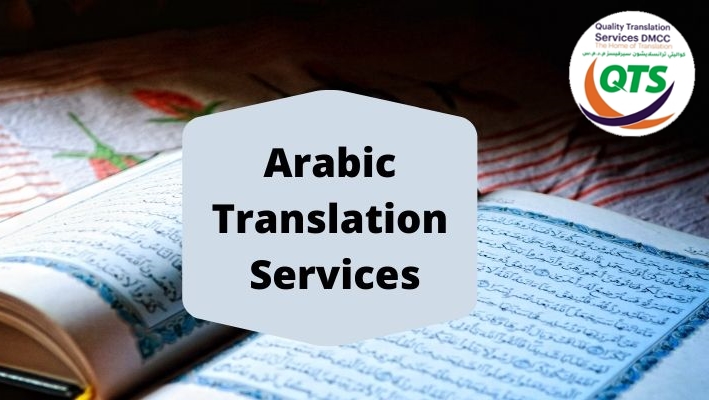Role of Arabic Translation in Your Marketing Strategy for the Middle East
As the UAE has become a key hub for international business, the need for accurate Arabic legal translation in Dubai has grown. Legal documents, such as contracts, agreements, and court submissions, must be correctly translated to meet local laws and regulations. These services ensure that businesses can operate smoothly while staying compliant with the legal system.
Incorrect translations can lead to serious issues, such as legal disputes or penalties. Therefore, working with professional legal translation services in Dubai is important to ensure that documents are accurate and legally sound.
Translation Services in Dubai
Dubai is a multicultural city with people from various linguistic backgrounds. Translation services in Dubai cover a wide range of documents, from business contracts to official certificates. With the city’s diverse population, translation services are necessary to communicate effectively across different languages.
For businesses, it’s important to choose certified translation services in the UAE for legal and official documents. Certified translations are recognized by government bodies, courts, and other institutions, ensuring that your documents are accepted and trusted.
The Growing Role of Arabic Translation in Marketing
As the Middle East continues to grow, Arabic translation has become an important part of marketing strategies. With a large Arabic-speaking population in the region, companies must adjust their marketing materials to suit local cultures and languages. This isn’t just about translating words—it’s about understanding regional customs and sensitivities.
Effective Arabic translation can help businesses build trust and credibility with local audiences. By ensuring that your marketing messages resonate with Arabic speakers, your brand can connect more deeply with potential customers, leading to stronger sales and growth in the region.
Arabic in Digital Marketing Strategies
With the increasing prevalence of digital platforms, optimizing marketing strategies in Arabic becomes vital. The role of Arabic translation in digital marketing includes various aspects, such as:
Website Localization: Translating website content into Arabic is critical for companies operating in the region. This not only involves textual translation but also adapting the layout for Right-to-Left (RTL) text and ensuring that the design supports Arabic script.
SEO Optimization: Arabic keywords and phrases need to be integrated into marketing content to optimize search engine performance. This requires an understanding of local search behaviors, which can be achieved through professional translation services.
Social Media Engagement: Brands must engage with Arabic-speaking audiences on social media platforms by creating culturally relevant and appropriate content. Using local dialects in social media campaigns can significantly enhance audience relatability and increase engagement.
Brand Trust and Engagement
Effective Arabic translation helps build brand trust and boosts engagement with target markets. When brands communicate in the native language of their audience, it creates a feeling of connection and recognition. Arabic-speaking customers are more likely to interact with and respond to marketing campaigns that speak directly to them in their language, leading to stronger brand loyalty and higher chances of converting them into customers.
Localization goes beyond just translating words; it includes adjusting visual elements, tone, and style to match local tastes. For example, colors, images, and symbols have different meanings in different cultures. A color that is seen as positive in one culture might be viewed negatively in another.
Challenges in Arabic Translation and Localization
Implementing effective Arabic translation strategies is not without challenges. Some key obstacles include:
Linguistic Diversity: The Arabic language comprises various dialects and forms, making it essential for brands to choose the appropriate variant for their target audience. For example, Modern Standard Arabic (MSA) is widely understood, but using local dialects can foster a more relatable tone.
Cultural Sensitivity: There is a necessity for cultural sensitivity in translation to avoid misrepresentation or offense. This requires a profound understanding of local customs, traditions, and potential religious sensitivities.
Quality Assurance: Ensuring high-quality translations is crucial to maintaining brand integrity. Companies must work with professional translators and localization experts familiar with both the Arabic language and regional market dynamics.
Key Considerations When Choosing Legal Translation Services
When selecting Professional translation services in Dubai, businesses should consider the following:
- Certification and Expertise: Choose a provider with certified legal translators who have the necessary training and qualifications.
- Industry Knowledge: Different industries use different legal terms. For example, the legal language in real estate is different from that in healthcare or finance. It’s important to select a translation service familiar with your industry’s terminology.
- Confidentiality: Legal documents often contain sensitive information. Ensure that the translation service follows strict confidentiality standards to protect your data.
- Turnaround Time: Timely delivery of translations is essential in legal matters. Ensure that the service provider can meet deadlines without compromising quality.
- Customer Support: Effective communication with your translation service is important for resolving any issues or clarifications quickly.
Integrating Arabic Translation into Marketing Strategies for the Middle East
Arabic translation plays a key role in marketing strategies for companies targeting the Middle East. Here are some ways to make the most of Arabic translation in marketing:
- Tailoring Messages: Ensure your marketing content resonates with local values by using regional dialects and expressions.
- Using Digital Channels: With social media being very popular in the region, creating Arabic content for platforms like Instagram, Facebook, and Twitter can help businesses reach a larger audience.
- Storytelling: Arabic culture has a strong storytelling tradition. Using storytelling in your marketing can help create a stronger emotional connection with your audience.
- Incorporating Feedback: Listening to local customers and adjusting your messages based on their feedback can improve your marketing efforts.
Conclusion
In conclusion, Professional translation services in Dubai and the UAE are very helpful for businesses operating in this vibrant market. As the region grows and attracts more international business, accurate translation of legal documents and marketing materials becomes even more important. By working with trusted translation providers and adapting your content to the local culture, you can build trust with customers and partners, ensuring your success in the UAE’s competitive marketplace.



Comments
Post a Comment